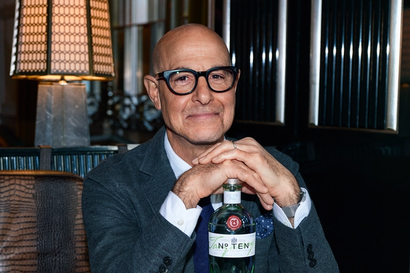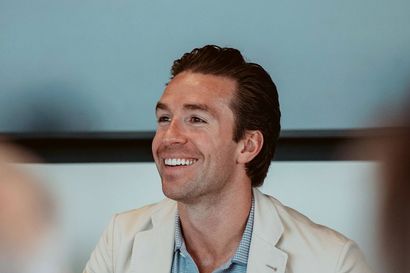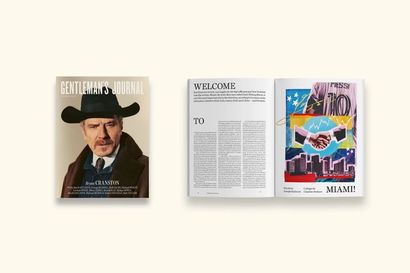Early on in his 50-year career, Michael Douglas had to wrestle with an important question: what do you do when your father, Kirk Douglas, is the hero? The answer was simple: you invent a new kind of hero — perhaps a flawed husband, or a greedy banking mogul.
Douglas has become the champion of moral ambiguity, the symbol of how weak the classic version of the Hollywood leading man can be. His career has not been straightforward, but through persistence he has entered the pantheon of truly great leading men — and there are lessons in his tale for all of us.
You don’t have to have it all mapped out
I went to the University of California in Santa Barbara. In my junior year, they took me to the office and told me I had to declare a major. I said, “OK, I’ll try theatre.” I watched my mother on stage growing up, and obviously I visited my father on set. I thought it would be easier — it wasn’t that I had a passion for acting. I didn’t know what I wanted to do.
To be good at something, you have to be terrible first
When I first started, I was a bad actor. My father came to see my first performance. He was supportive — he drove up to see me perform -— but he was honest. “How was I dad?” I asked. “You were not very good, son,” he said. I don’t know what kept me going, but I slowly got better. And the better I got, the more I enjoyed acting. It took me many years.
Early on in my career, someone made the mistake of telling me: “The camera can tell when you’re lying.” My early acting was all about finding reality and truthfulness. It wasn’t until I did Fatal Attraction that it changed. I was working on my character, preparing for the movie. I was like, “OK, I’m a lawyer in New York — I could be a lawyer in New York!” or “I’m married and I’m having an affair — that’s possible!” Then I thought, “Wait a minute — acting is more about lying than anything else.” Suddenly, that freed me up, and I was no longer nervous.
Learn the value of listening, rather than talking
My mentor was Karl Malden. I owe him everything. He was my partner in my first big role, a TV show called The Streets of San Francisco. I did 104 hours of episodes, 26 hours on TV each year, working six days a week. Watching his own strength made me stronger. He showed me the value of listening, rather than just waiting to talk.
As for the plus-side of being a second-generation actor, you’re able to handle failure better than somebody coming from the outside. You’re able to watch your father’s friends — be it Frank Sinatra, Burt Lancaster, Tony Curtis, Janet Lee — and see them as real people, their insecurities and their foibles. But it took me a little longer to get out of my father’s shadow and establish my own identity.
Trust your gut instinct
My father, besides being an actor, was also a very successful producer. He found a book before it was published called One Flew over the Cuckoo’s Nest by Ken Kesey and bought the rights. He developed it into a play with the idea that if it was successful, he’d make it into a movie. The play ran six months — it wasn’t that big. Then in 1963, I was in college taking a course in 20th-century American literature, and One Flew over the Cuckoo’s Nest was one of the books. I read it [and thought] it’s fantastic. It’s wonderful. Meanwhile, my father had been trying for years to make it into a movie. One day, I heard him say he was selling the rights to this book. So I said, “No, don’t do that, Dad. Let me try.”
While I was doing The Streets of San Francisco, I looked for a partner to produce the One Flew Over the Cuckoo’s Nest movie. Finally, I found Saul Zens, and I was able to leave the series after four years. Everybody thought I was crazy — it was a very successful show. But I did and the rest is history. It’s really what has led me to trust my instincts.
Greed is not good
I said it as Gordon Gekko, but I don’t believe that greed is good. The size of fortunes in finance have increased. It’s an accumulation of our political system over the past 30 years; the amount of money that’s invested in certain politicians, so the politician is not responsible to his constituency, but to the people who financially supported him. What you’re seeing now is the result of years of choosing the person who has the best financial connections. I’m sure Gordon Gekko would have been friends with Donald Trump. I’ve known Donald fairly well over the years, in New York. They would probably play golf together!
This interview first appeared in our March issue, click here to subscribe and get your copy sent to your door today…

Become a Gentleman’s Journal Member?
Like the Gentleman’s Journal? Why not join the Clubhouse, a special kind of private club where members receive offers and experiences from hand-picked, premium brands. You will also receive invites to exclusive events, the quarterly print magazine delivered directly to your door and your own membership card.


